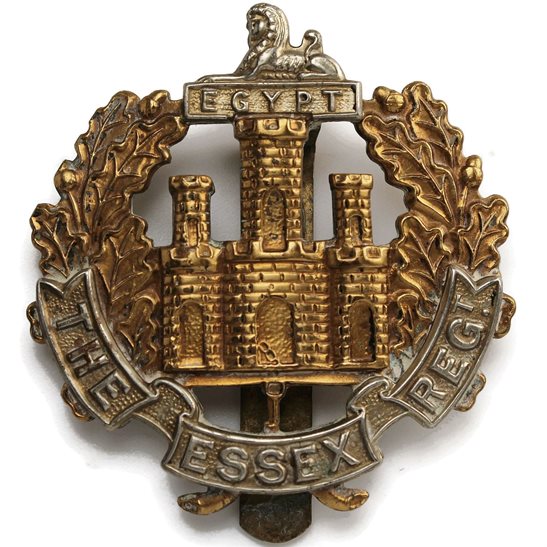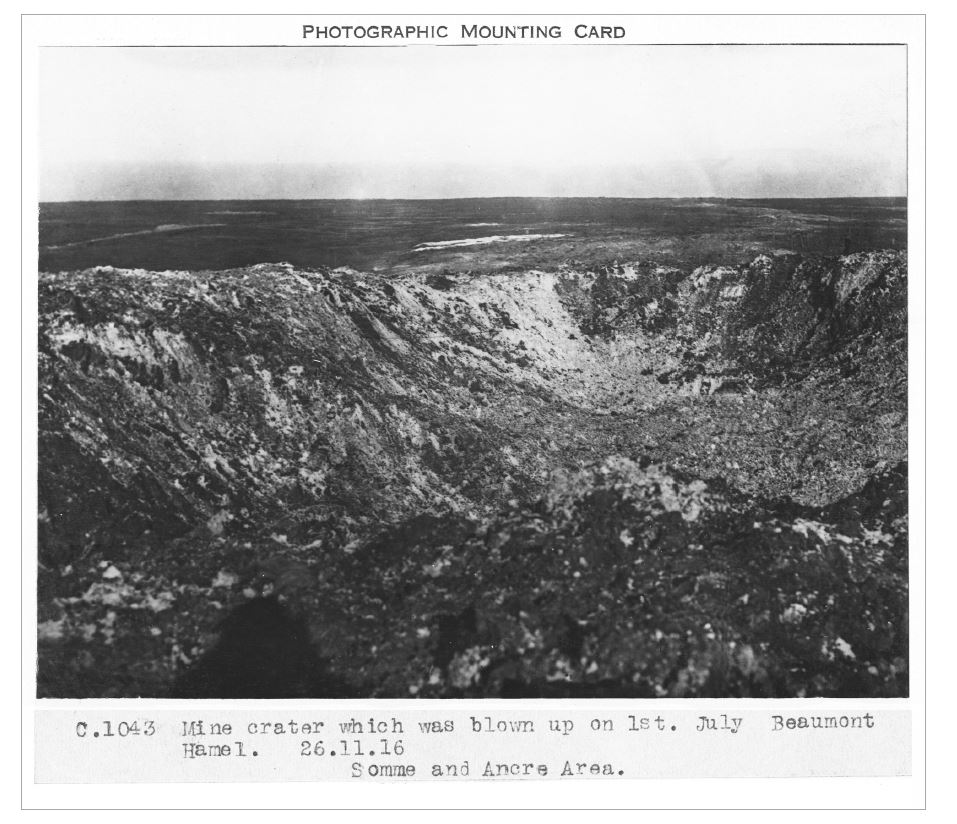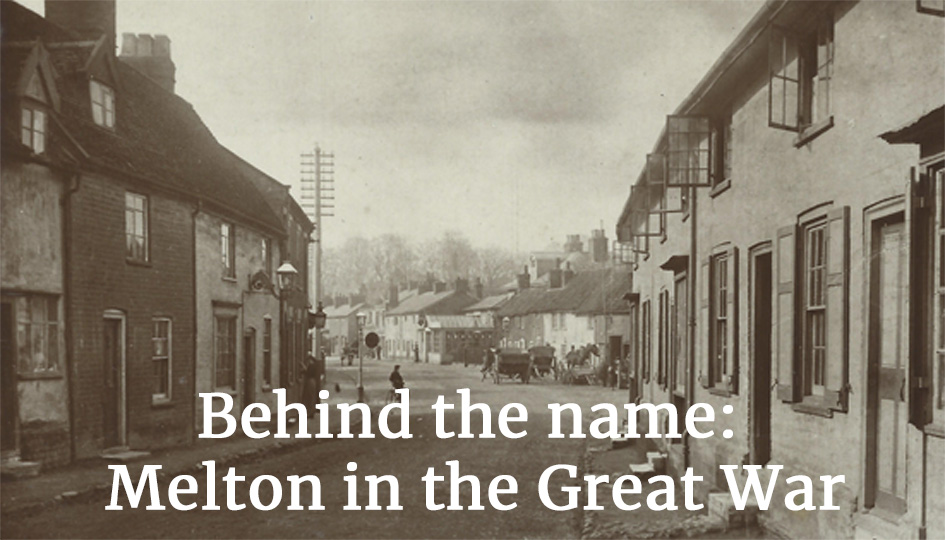Cap badge of the Essex Regiment
Frank Augustus Wilkins was born in Melton on 1st June 1893. He was the youngest of Herbert and Laura’s (née Broome) five children. In 1901, the family were living in Deben Road, Woodbridge, where Herbert was employed as a horse slaughterer. By 1911, the family had moved to 3 Angel Lane, Woodbridge, and Frank was working as a boot repairer. His elder brother, Herbert Jr., worked as a groom, his elder sister, Maud, at the Coach and Horses in Melton, Florence was still at home and Jessie, in school. Records suggest that during the war, the Wilkins family were living on The Street in Melton.
When war broke out in August 1914, Frank continued working as a boot repairer before deciding to enlist. He joined the 1st Cambridgeshire Regiment on 18th October 1914. Only four months of training later, the regiment received mobilisation orders and arrived in France on 14th February 1915. Very soon after that, Frank and the battalion were on the front line in the Ypres Salient. On the 14th March, the battalion was at St Eloi, when at 17:30, the German army set off a mine underneath nearby trenches and immediately began to advance. Frank and his colleagues found themselves in a full-scale battle – it was virtually their first time on the front line.
Through the night and into the following day, the battle continued, but the German advance was checked. By the evening of the 15th, all but one company had received orders to return to billets. The battalion remained in the Ypres Salient throughout the summer, taking part in the Second Battle of Ypres. In November 1915, the 27th Division, of which the Cambridgeshire Regiment was a part, were ordered to Salonika. Frank and his battalion, however, were to remain in France.

A mine crater at Beaumont Hamel in France showing the destruction an underground explosion causes.
Frank Wilkins witnessed a mine explosion virtually the first time he was on the front line.
(United States Library of Congress)
By the end of November, they had joined the 3rd Army as their training battalion based at Flixecourt in France. Their role was to provide the officers and NCOs attending the school with a well-trained infantry battalion that could demonstrate current tactics in use by the army and used to experiment with new techniques and ideas. By the end of their time at the training school, as February 1916 drew to a close, the battalion was probably one of the best-trained groups on the Western Front.
At some point in the following years of the war, Frank was transferred to the 11th Battalion, Essex Regiment. In 1918, he was serving with them in the Zillebeke area of the Ypres Salient building defences to prevent a German attack from Hill 60. It was during an enemy artillery bombardment that Frank was wounded while bringing an injured soldier back to the safety of the trenches. The Woodbridge Reporter and Wickham Market Gazette of 9th May 1918 reported:
“Mrs H Wilkins of Melton has received a letter from her son Pte Frank Wilkins of the Essex Regiment, stating he was wounded in the face through a shell bursting about 5 yards from him when he was fetching a wounded comrade in. He is progressing satisfactorily.”
Frank was returned by hospital ship to Britain for treatment and he was not to be sent back out to the front again. He was discharged from the army on 11th March 1919. For his war service, Frank received the 1914-15 Star, the British War and Victory Medals and the Silver War Badge.
In 1925, Frank is recorded as being a boot repairer in Melton. In the same year he married Ivy Creasey and the 1939 register entry for the family shows that they were living in New Street, Woodbridge, where Frank was working as a master shoe and boot maker and repairer. A side note states that he was also a “Disabled Army Pensioner”. Frank died in 1969.
Frank’s elder brother, Herbert, also served during the war with the Army Veterinary Corps. His service number TT/01168 indicated that he was a member of the Territorial Force. Herbert received the British War and Victory Medals for his war service.
